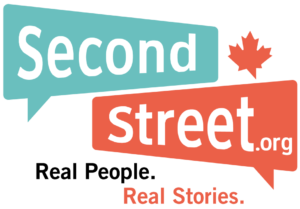We’re Hiring: Policy Director

ABOUT US: SecondStreet.org is a think tank that conducts public policy research with a unique focus around telling the stories behind the numbers. Simply put, we show how everyday Canadians are affected by government policy decisions.
We communicate these stories through short videos, newspaper columns and media interviews.The stories feature our own research and the work of other reputable think tanks.
We see opportunity, choice and responsibility as three pillars for the successful, self-governing nation envisioned by Canada’s founders.
JOB DESCRIPTION: The SecondStreet.org (SSO) Policy Director is responsible for developing and executing the organization’s research and public policy initiatives in keeping with SecondStreet.org’s strategic plan.
The position can be based from a remote office anywhere in Canada.
Salary is commensurate with experience.
REPORTING: This position reports to SecondStreet.org’s president.
MAJOR DUTIES:
- Work with the president in developing a research and public policy initiatives plan/schedule for each year in coordination with SecondStreet.org staff team.
- Research and public policy provision is both 1) immediate: providing background/ assistance/authorship on quick response opinion editorials/news releases/social media postings, and 2) longer term: coordinating major research projects such as the annual Died on a Waiting List report, various policy briefs and video content.
- Keep dedicated pages including, but not limited to, CanadaWaits.ca up to date.
- Work with the president and staff to develop best practices in advancing research and public policy recommendations that fit with stories, narratives and other creative methods that best expand potential reach and impact.
- Work with, supervise, and assign tasks to any student interns as requested by the president.
- Engage and oversee any contracted outside research or related vendors as required.
- Organize and synthesize all past SecondStreet.org research and papers for easy access and continuity of published materials.
- Edit and fact-check staff material as requested to ensure top quality control.
- Represent SecondStreet org publicly to media, stakeholders, legislative/parliamentary bodies, conferences as requested.
- Anticipate trending public policy issues – with particular focus around health care and education policy – and look for opportunities to produce clever and timely material. Work with the president and staff team to brainstorm, pilot and measure new approaches.
- Ensure a consistent look and style of produced materials.
- Be available and prepared to contribute at regular staff meetings.
- Look for and attend networking related and professional development events.
- Be a leader in shaping SecondStreet.org’s public policy development and recommendations. Work with the president and CEO in contributing to ideas and revisions to incorporate into SecondStreet.org’s Strategic Plan.
- Other duties as assigned.
QUALIFICATION: First and foremost, you must be committed to the ideals of limited government and market-based choice.
Experience in public policy research or advocacy with strong writing and communication skills. You should have a sound understanding of Canadian health care and education policy.
Strong analytical, critical thinking, foresight and problem-solving skills are essential. You are expected to work collaboratively in a team environment both internally and externally with other like-minded partners.
Finally, you must have fire in the belly. Think tank work is work of the heart. If you’re looking to get rich or strictly clock eight hour days; this position is not for you. This position requires long hours from time-to-time and hard work, but is a lot of fun and incredibly meaningful.
WORKING CONDITIONS:
- The Policy Director is a full-time salaried position operating remotely. In-house support is minimal.
- Although flexibility with hours may be granted, the Policy Director keeps regular office hours and will sometimes be expected to work overtime to meet deadlines and commitments.
- Expect to travel two to three times a year.
- All work-related expenses and travel will be reimbursed including networking related and professional development expenses. All expenses must be cleared by the president. Expenses must be itemized and submitted to the Executive Secretary at least once a month.
- SecondStreet.org will cover the cost of basic home office expenses including internet, cell phone and other technology as needed.
- Keep up with news and current events related to public policy including all content produced by SecondStreet.org.
- Be self-motivated and prepared to work independently as peer interaction is limited.
PERFORMANCE MEASUREMENT: The Policy Director’s performance will be evaluated based on the responsibilities outlined in this job description and his/her contributions toward the organization’s targets as noted in the Strategic Plan. A performance review will take place after the director’s third month with the organization and annually thereafter.
TO APPLY: Interested candidates should send their resume and a cover letter that explains their relevant experience to Colin Craig: colin@secondstreet.org. The deadline for applying is Monday, April 29, 2024 @ 5:00PM EST
You can help us continue to research and tell stories about this issue by making a donation or sharing this content with your friends. Be sure to sign up for our updates too!


